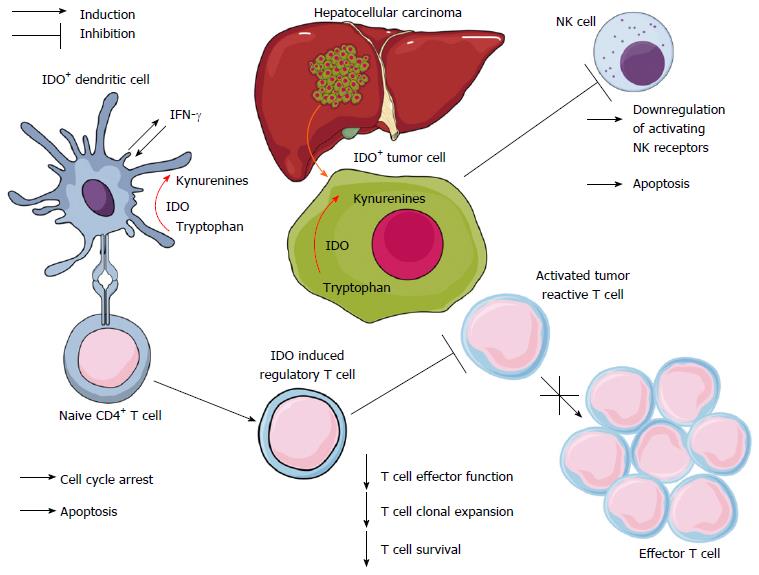Copyright
©The Author(s) 2017.
World J Gastroenterol. Apr 7, 2017; 23(13): 2286-2293
Published online Apr 7, 2017. doi: 10.3748/wjg.v23.i13.2286
Published online Apr 7, 2017. doi: 10.3748/wjg.v23.i13.2286
Figure 1 Immunosuppressive role of indoleamine 2,3-dioxygenase in human hepatocellular carcinoma.
Indoleamine 2, 3-dioxygenase (IDO) expression is constitutively induced in both IDO+ tumor cells and plasmacytoid dendritic cells (DCs) by exposure to IFN-γ. The effector function of the antigen-specific T cells is impaired because of tryptophan degradation via IDO at tumor site, which in turn affects the immune-mediated control of tumor growth. A tolerogenic microenvironment is created by regulatory DCs resulting in the increased number of T-regs and reduced number of antigen-specific T cells leading to cell cycle arrest and apoptosis. IDO+ tumor cells lead to down-regulation of activating NK cell receptors.
- Citation: Asghar K, Farooq A, Zulfiqar B, Rashid MU. Indoleamine 2,3-dioxygenase: As a potential prognostic marker and immunotherapeutic target for hepatocellular carcinoma. World J Gastroenterol 2017; 23(13): 2286-2293
- URL: https://www.wjgnet.com/1007-9327/full/v23/i13/2286.htm
- DOI: https://dx.doi.org/10.3748/wjg.v23.i13.2286









